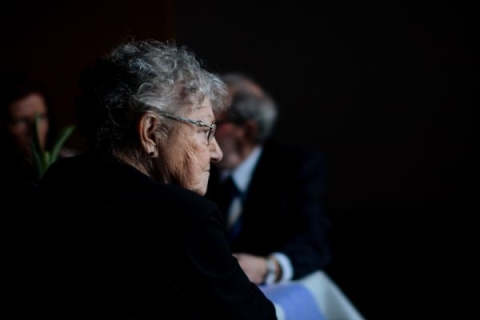

Researchers from the University of Portsmouth are looking for volunteers to take part in a new project to help support the estimated half a million people in the UK affected by bedsores every year.
Bedsores (also known as pressure ulcers) are injuries to the skin and underlying tissues that can develop among those who are less mobile. People of any age can get a bedsore but research has shown that they are more likely to develop in older people. Those affected by bedsores can experience pain, fear and isolation.
Managing bedsores and other chronic wounds costs the NHS up to £5.1 billion each year, most of which is spent treating people outside of hospitals.
The new research project will identify ways to support older individuals who are at risk of bedsores and are living in their own home (i.e. not an in-patient, or a care home resident) to reduce their risk. The research is being led by a team from the University of Portsmouth, working with colleagues from Birmingham City University and Solent NHS Trust. It is funded by the National Institute for Health and Care Research (NIHR), the research partner of the NHS, public health and social care.
The research team is looking for people aged 65 and over, who have limited mobility and are at risk of bedsores, and their informal carers (such as friends and family members). They will ask about the advice and information they were given about reducing the risk of bedsores and how, why and how much they followed this advice.
From this, they aim to develop a ‘toolkit’ of resources for people at risk of getting bedsores, their carers and community-based healthcare staff (i.e community nurses, occupational therapists, physiotherapists). This could include videos, leaflets and reminders about bedsores and how people might reduce their risk.
Dr Jenny Roddis, Associate Head Research and Innovation in the School of Health and Care Professions at the University of Portsmouth, said: “Strategies to prevent bedsores include keeping moving, eating a healthy balanced diet, quitting smoking and regularly checking skin for the early warning signs of bedsores. However, we don’t yet know what older people at risk of bedsores and their informal carers know about preventing bedsores and whether they can follow prevention advice.
“We know that designing this toolkit with patients and carers is most likely to result in resources that are acceptable, fit for purpose and used.”
At the end of the project, there will be a celebration event to thank those involved and to seek funding to test out the toolkit. The hope is that, within a few years, the toolkit will be made available nationally to those at risk of bedsores and their informal carers.
If you are interested in hearing more about the project, or taking part, please contact:
Dr Jenny Roddis, jenny.roddis@port.ac.uk, tel: +44 (0)2392 846 807 or
Dr Carol Samuel, carol.samuel@port.ac.uk, tel: +44 (0)7593 100 412.
This project is funded by the National Institute for Health and Care Research (NIHR) under its Research for Patient Benefit (RfPB) Programme (Grant Reference Number NIHR201933). The views expressed are those of the author(s) and not necessarily those of the NIHR or the Department of Health and Social Care.
Strategies to prevent bedsores include keeping moving, eating a healthy balanced diet, quitting smoking and regularly checking skin for the early warning signs of bedsores. However, we don’t yet know what older people at risk of bedsores and their informal carers know about preventing bedsores and whether they can follow prevention advice.
